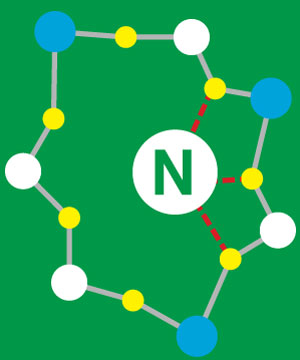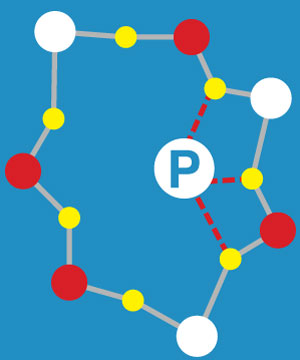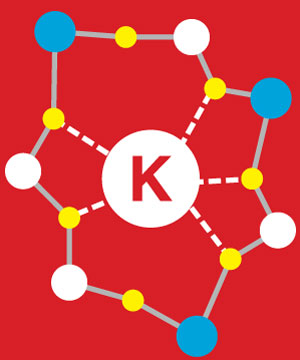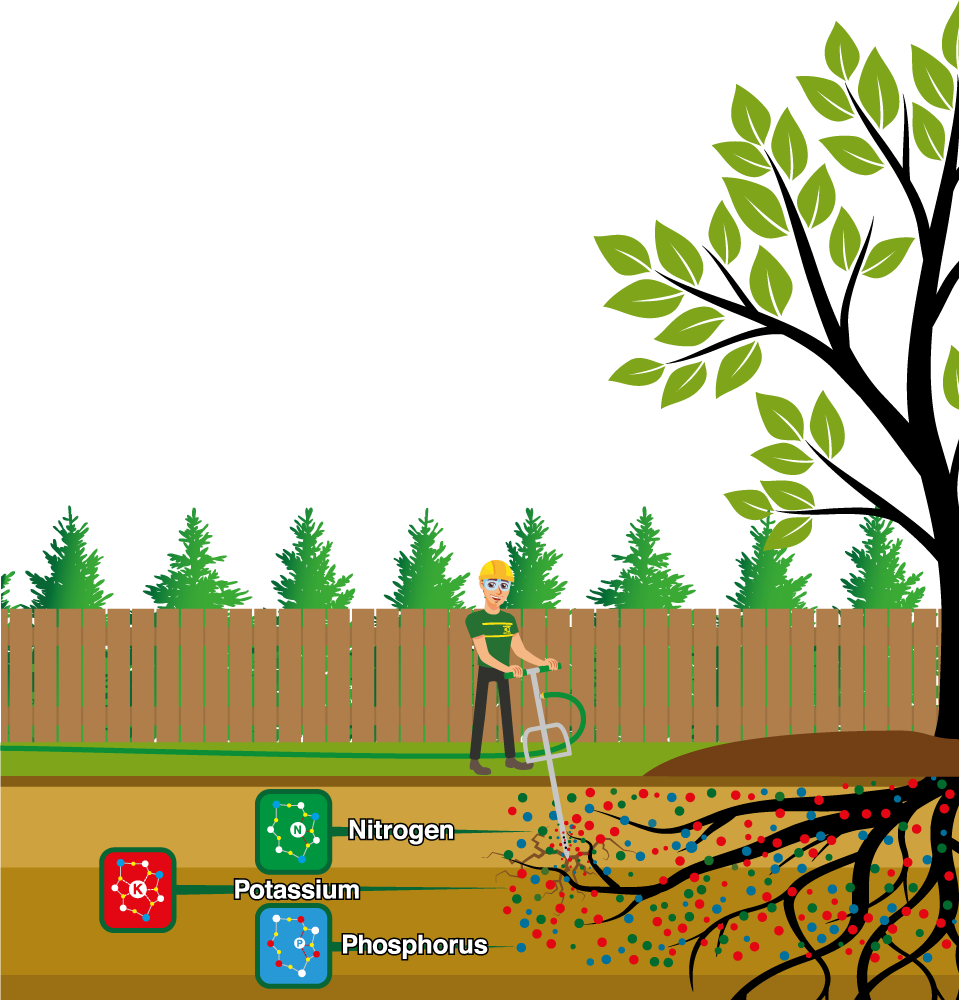Tree & Shrub Fertilization
Beautiful Trees and Shrubs Start With Healthy Soils and Proper Mulching

Nitrogen
Nitrogen is an essential nutrient for plant growth, development and reproduction. Despite nitrogen being one of the most abundant elements on earth, nitrogen deficiency is probably the most common nutritional problem affecting plants and Trees worldwide – nitrogen from the atmosphere and earth's crust is not directly available to plants.
Nitrogen (N) is so vital because it is a major component of chlorophyll, the compound by which plants use sunlight energy to produce sugars from water and carbon dioxide (i.e., photosynthesis). It is also a major component of amino acids, the building blocks of proteins. Without proteins, plants wither and die. Some proteins act as structural units in plant cells while others act as enzymes, making possible many of the biochemical reactions on which life is based. Nitrogen is a component of energy-transfer compounds, such as ATP (adenosine triphosphate). ATP allows cells to conserve and use the energy released in metabolism. Finally, nitrogen is a significant component of nucleic acids such as DNA, the genetic material that allows cells (and eventually whole plants) to grow and reproduce. Without nitrogen, there would be no life as we know it.

Phosphorus
Phosphorus (P) is an essential nutrient both as a part of several key plant structure compounds and as a catalysis in the conversion of numerous key biochemical reactions in plants. Phosphorus is noted especially for its role in capturing and converting the sun's energy into useful plant compounds.
Phosphorus is a vital component of DNA, the genetic "memory unit" of all living things. It is also a component of RNA, the compound that reads the DNA genetic code to build proteins and other compounds essential for plant structure, seed yield and genetic transfer. The structures of both DNA and RNA are linked together by phosphorus bonds.
Phosphorus is a vital component of ATP, the "energy unit" of plants. ATP forms during photosynthesis, has phosphorus in its structure, and processes from the beginning of seedling growth through to the formation of grain and maturity.
Phosphorus is essential for the general health and vigor of all plants.
- Aids in root growth
- Improved flower formation
- Improvements foliage quality
- Increased blooming and fruiting in plants
- Increased resistance to plant diseases and insects
- Supports plant growth development throughout entire season

Potassium
Potassium (K) is the nutrient responsible for plants' metabolism. This makes it helpful in any garden, and it acts as support for the nutrients nitrogen (N) and phosphorus (P). Specifically, potassium aids plants in retaining water, regulates plants' internal cation-anion balance -- meaning the positive and negative ions are in balance -- and aids protein synthesis to energize plants for healthy growth.
Potassium is necessary for root development in plants, which is why it's especially helpful for young plants putting down new roots and invigorating new roots in older plants.
Potassium also enhances plants' defense systems, making them less vulnerable to disease and insects. Specifically, potassium thickens cell walls and strengthens stems and roots to make plants more resistant to disease and better able to tolerate stress. In plants that already have diseases or insect infestations, potassium can lessen the severity of the problems.

